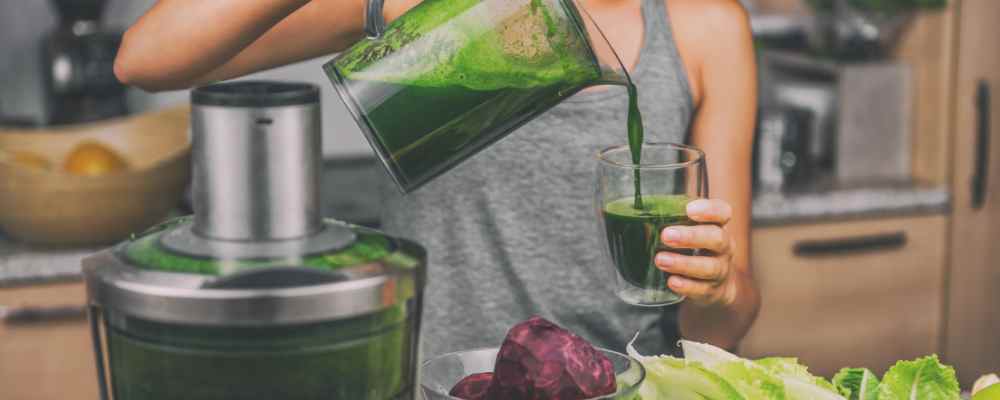Juicing has become a popular trend in recent years, with many people believing that it offers numerous health benefits. However, like any trends on the market, we can't help but to pause and think: is there science behind juicing? Is it really good, or necessary? So let's dive in and ask the smartest minds on the internet.
Is Juicing Actually Healthy?
Yes, there is scientific evidence to support the potential health benefits of juicing. Juicing can provide a convenient way to increase your intake of fruits and vegetables, which are important sources of vitamins, minerals, and phytonutrients that can benefit overall health and prevent chronic diseases.
Several studies have shown that consuming a diet rich in fruits and vegetables can lower the risk of chronic diseases such as heart disease, cancer, and type 2 diabetes. Juicing can be a way to increase your intake of these beneficial foods, especially for those who have difficulty eating whole fruits and vegetables due to taste or texture preferences or digestive issues.
However, it's important to note that some of the potential benefits of juicing may be due to the increased consumption of fruits and vegetables rather than the juicing process itself. Juicing can also lead to the loss of fiber and other nutrients that are found in the pulp and skin of fruits and vegetables, so it's important to consume a variety of whole fruits and vegetables as well.
What Is the Downside of Juicing
While juicing can provide a convenient way to increase your intake of fruits and vegetables, It's also worth noting that there are some potential downsides to juicing. For example, juices can be high in sugar, which can contribute to weight gain and other health problems if consumed in excess. Here are some of the major downside of juicing:
1. Lack of Fiber
Juicing removes the pulp and fiber from fruits and vegetables, which can lead to a loss of some important nutrients. Fiber is important for digestive health and can help you feel full and satisfied after meals. Without fiber, the sugar in the juice can be absorbed more quickly into the bloodstream, potentially leading to blood sugar spikes and crashes.
2. High in sugar
This is a major bummer! Juices can be high in sugar, especially if they contain a lot of fruit. And without fiber, fruit juices are no different from pop. Consuming too much sugar can contribute to weight gain and other health problems, such as type 2 diabetes and heart disease.
3. Expensive
Juicing can be expensive, especially if you use a lot of fresh produce. In addition to the cost of the produce itself, you may also need to invest in a high-quality juicer.
4. Time-Consuming
Juicing can be time-consuming, as it can take a while to prepare the produce and clean the juicer.
5. Not A Complete Meal
While juices can be a healthy addition to your diet, they should not be used as a complete meal replacement. Juices are typically low in protein and healthy fats, which are important for satiety and overall health.
6. Potential for Food Borne Illness
Consuming raw fruits and vegetables carries a risk of foodborne illness, such as from harmful bacteria like E. coli or Salmonella. It's important to thoroughly wash and handle produce safely before juicing.
Overall, while juicing can be a healthy way to increase your intake of fruits and vegetables, it's important to be aware of the potential downsides and make informed choices that work for your individual needs and lifestyle.
What Are The Biggest Myths Behind Juicing
There are many popular myths started by the dieting industry surrounding juicing that are not based on scientific evidence. Let's expose them! Some of the biggest myths about juicing include:
Myth #1: Juicing Helps Weight Loss
Remember when your friends all jumped on the juice diet? Wrong! While drinking juice can help you consume more fruits and vegetables, it is not a quick fix for weight loss. Juices can still be high in calories and sugar, and relying solely on juice for weight loss can lead to nutrient deficiencies and other health problems.
Myth #2: You Can Replace Fruits and Vegetables With Juices
While juicing can be a good way to add more fruits and vegetables to your diet, it should not be a substitute for eating whole fruits and vegetables. Whole fruits and vegetables contain more fiber, which is important for digestive health.
Myth #3: Juicing Can Detoxify Your Body
Biggest marketing scam EVER! There is no scientific evidence to support the claim that juicing can detoxify your body. As a matter of fact: your body has its own natural detoxification system, and drinking juice alone cannot help your body eliminate toxins.
Myth #4: Fresh Juice Is Better than Juice Bottles
This one is sad: you think you're doing the right thing by giving your body the better food, but turns out: fresh juice is high in sugar. Some store-bought juices can be lower in sugar and higher in nutrients, so it's important to read labels and choose carefully.
Myth #5: Juicing Is Necessary to Get Enough Nutrients
While juicing can be a convenient way to get more nutrients, it is not necessary to juice to get enough nutrients. Eating a balanced diet that includes a variety of fruits and vegetables can provide all the nutrients your body needs.
Conclusion
Overall, while juicing can be a healthy addition to your diet, it is important to understand the facts and myths surrounding it to make informed choices.


